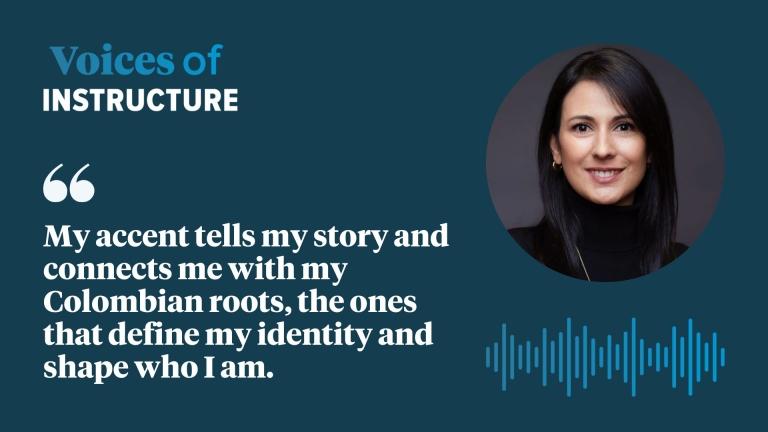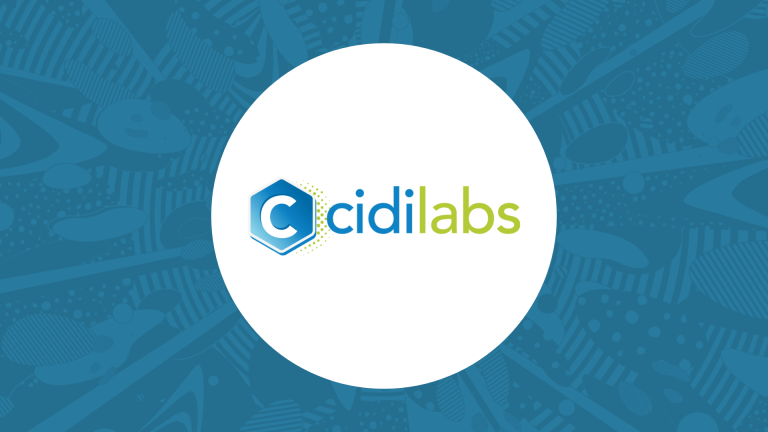
I have been living in the U.S. for over a decade. I have changed, evolved, renewed, and probably been forced to think about my identity in ways I would have never had to contemplate if I lived in Colombia, where I was born.
There, I started learning English in preschool and took additional lessons after finishing university; however, I only experienced being completely immersed in an English-speaking environment when I moved to the U.S. in my 30s.
You might think my English was pretty advanced by the time I came to the U.S. since I started learning it that early in life, but it was not. There were many things that I was missing, and probably the most important one was understanding the real meaning of being bilingual and why having a native-like accent was not the most relevant thing to be understood or to feel accepted.
It’s Not About the Accent
Back in Colombia, I remember feeling very proud of being bilingual and seeing how I was getting better job opportunities because of that. During my internship at the British Embassy, they used to tell me my English was very good…You know how English speakers always say: “Your English is great, better than my Spanish”...as if that is a real compliment. We all know it is not. But back then, it was making me feel great!
Little did I know that all I needed was to call a doctor’s office or a bank in the U.S. to get back down to Earth and face the reality: my English was not good enough, and my accent was not “neutral.”
“I am not sure I understand.” That is what the recording machines would tell me every time I was simply saying my account number. Are you kidding me? I said Zerooooooo!!! Siri was not even in the picture yet; she came later into my life to make me feel even worse…hahaha.
I wished I did not have an accent; I wished people would not notice I was a foreigner. Then, I became a mom and started learning how to raise bilingual and bicultural kids. I read research by experts in bilingualism and bicultural people to finally understand what this is about:
“Having an accent or not does not make one more or less bilingual.” François Grosjean, Professor Emeritus and former Director of the Language and Speech Processing Laboratory at the University of Neuchâtel.
I realized that speaking like a native-English speaker was not going to make me sound like one or even make them accept me as if I were one. I stopped worrying about my accent and decided to embrace it because I also realized that my accent tells my story and connects me with my Colombian roots, the ones that define my identity and shape who I am.
The Unsung Heroes of the Bilingual Journey
Recently, we went for a drive with a co-worker from Australia, who has been working closely with me for over a year. When we stopped, he respectfully recognized that it was challenging for him to understand parts of our conversation and concluded that it was because he was unable to see me while he was driving.
We always communicate via Zoom, and it looks like my overly expressive non-verbal cues have been key for him to understand me. I started laughing since, quietly, I was having the same experience.
While we have gotten used to each other’s accents and variations in how we speak English, we are still learning to adjust to communicate effectively. For me, it has involved being more concise and direct and watching my pronunciation, and for him to slow down sometimes and also provide more time and space for me to be able to add context and use more words to express myself.
Surfacing language barriers is not about not having a foreign accent or native-like language proficiency but about the receptors willing to make communication work and genuinely help us feel more confident.
From family members to my friends and co-workers, I have been able to feel at home and succeed in my career, not because I have mastered English at the native level (which I have not) but because they have been willing to understand me and see ME and my capabilities beyond my accent and any English language flaws.
“The true unsung heroes of the learning enterprise are people who are willing to slow down, to adjust, and to assist and scaffold our efforts,” Dr. Aneta Pavlenko, Professor of Applied Linguistics Center for Multilingualism in Society across the Lifespan, University of Oslo.
About the Author
Ana Calabrese leads Instructure's communications strategy for the international markets. She holds a dual Bachelor of Communication and Journalism from La Sabana University in Colombia. As an expat living in the U.S., she has used her professional experience to advocate compassionate and respectful bilingual parenting and help debunk myths and misinformation about bilingualism.
Related Content
 Teaching-With-Tech-10-Benefits.jpg
Teaching-With-Tech-10-Benefits.jpgBlogs
 cidilabs.png
cidilabs.pngBlogs
 canvas_x_tg_logo_lockup_780_x_520.png
canvas_x_tg_logo_lockup_780_x_520.pngBlogs